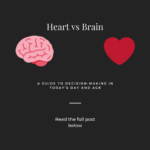We all love statistics right?
We love to consume facts and figures thinking it will help us make better decisions. We have been taught from a young age to blindly trust the information made available to us.
Sure, it is kind of helpful to understand what the general tendency is, but there are things about facts and figures that remain hidden.
As Alex Ferguson once said:
‘Statistics are like mini-skirts – they give you good ideas, but hide the most important thing.’
So, in this blog post, I will explain why you SHOULD NOT trust statistics blindly.
Statistics will always assume a degree of error
Seems counterintuitive right? Statistics were supposed to be exact and conclusive.
Every time we see numbers and figures we nod our head, assuming results cannot be questioned. Not quite.
Truth is, a majority of the facts and figures you read about are based on research that will assume a 5% error. In statistical terms, this is known as ‘significance level’.
In simple terms, however, that would mean that, should the same research be carried out 100 times, 5 of them would be ERRONEOUS.
Judging by the numbers, it would seem logical that we trust statistics when we make life decisions, but hear me out. What if your own ideas and beliefs were in that 5%?

Are statistics valid to YOU?
Another thing about statistical ‘facts’ is that they might not be valid to begin with.
‘Women tend to live longer than men.’ Oh really?
How do you know if the researcher wasn’t biased? Where was the research carried out? When? For what purposes?
What methods were used? How were participants selected? How was the data measured?
Nobody thinks about that stuff, but YOU should. Don’t be fooled by statistics that generalize to the whole population without knowing the study’s intent FIRST.
Speaking of generalization…
Statistics use representative, but inconclusive samples
What does that mean?
It means statisticians make use of small subsets of the ‘population’ under study.
In simplest of terms, they make conclusions about a small sample (let’s say 200 people) and GENERALIZE it to everyone.
And here is where the ‘social norms’ bias kicks in – it is remarkable how easily we would trust these generalizations in the name of feeling socially accepted.

So next time someone puts you down with statistics and ‘factual’ data, remember that it is all based on generalizations.
It is not necessarily a fact that applies to you.
Bottom line is, we don’t really know what we know. All the information we consume is all assumptions of other people, done for specific purposes to their intentions, regurgitated over and over again.
Statistics might help guide you, but don’t neglect the intelligence within you.
Sometimes you have to trust your gut and go for what you believe in.
How much do you rely on facts and data? Let me know down below!






